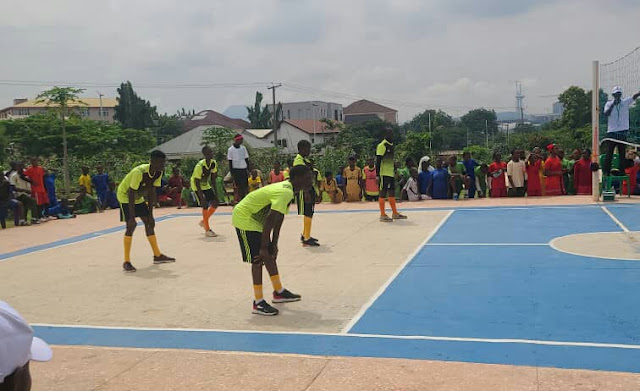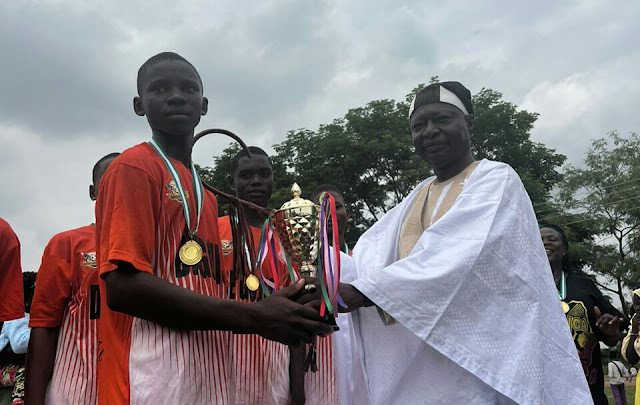Nigeria is one of the most rapidly developing nations in the world. The sports industry in Nigeria is booming. Let us learn the massive impact sports has had on the nation’s economy.
How Sports Industry Plays a Key Role in Nigeria’s Economic DevelopmentHave you ever questioned why some nations receive medals while others do not? If they compete in sporting events like the Olympics, they also lack the potential to earn gold. Sports-related economic issues are prevalent in developing nations. According to some claims, sports accomplishments should be evaluated regarding a nation’s Gross Domestic Product (GDP) per capita and investment in sports. It is especially true of a nation’s success at the Olympics.
A nation can rise to the top of the medal table with the help of a well-structured sport development framework and substantial money. The population is also important, and with 1.4 billion people, China was well-represented at the 2020 Olympic medal table, coming in second to the United States of America, which had 113 medals won and has a population of more than 300 million, with a total of 88 medals won.
Sports and Economy in Nigeria. General Situation
Nigeria is rife with political chauvinism, religious bigotry, and ethnic prejudice. Yet, these are usually set aside since Nigerians are always in unison regarding sports in Nigeria, especially football, regardless of their political affinity, religious conviction, or ethnic connection. The team they are rooting for at that time is typically what sets them apart. When selecting representations for the nation in international contests, routine factors like quota systems or federal character are irrelevant. When choosing who will represent the nation, abilities are more important than other factors. “One beautiful thing about sport is that it shelves the idea of political ideologies, ethnicity, or religion,” asserts Emeka et al. (2016:72).
Regardless of their ethnic, cultural, religious, or social economic backgrounds, individuals worldwide can come together through sports, putting aside all other differences and working together towards a single objective. Athletes from all backgrounds are invited to compete in major sporting events:
● Winter and Summer Olympics;
● Commonwealth Games;
● All African Games;
● Nigerian National Sports Festivals.
They are brought together to live in a single-game village and compete as humans on an even playing field. As Nigerians behave in harmony in favor of the national team or the country’s representatives, this is typically the case in tournaments connected to national competitions. The problems of sports in Nigeria are slowly being overcome.
The development and sustainability of peace can be facilitated by sport because of its special qualities. People worldwide are more naturally drawn to sports than any other activity, according to UNOSDP. It is because when sports are played properly, it is thought that everyone will have a good and enjoyable time. Additionally, sport is designed to highlight and enhance a person’s strengths. Thus, sports encourage self-empowerment and a hopeful outlook on the future, which are crucial for achieving development (United Nations, 2013).
Impact of the Sports Industry on Nigeria’s Economic Development
Sports events are no longer just about planning high-quality activities; they are now a significant tool for the economic growth of a local community, region, or nation (Van den Berg, Braun, & Otgaar, 2000).
According to estimates from tourism officials, the 2003 Cricket World Cup helped the South African economy by at least 1.2 billion rands (Hassen, 2003). Employment, economic impact, and direct spending were highlighted by Kurtzman (2005) as advantages of sport tourism for a community.
Mega sports tourism provides significant foreign currency exchange and expenditure in the sports host community. During sporting events, particularly the major ones like the World Cup, lodging providers like hotels and guest houses see an increase in business and profit. The demand for hotel rooms is constantly increasing, which raises the costs. Additionally, buying and selling non-sports items such as food and beverages, mobile phones and accessories, beverages, satellites, electronics, video cameras, etc. is always higher than the average buying and selling from domestic and foreign sports tourists. These items include sports shoes, T-shirts, balls, whistles, and “vuvuzelas.” Without athletes traveling from their homes to the sporting event or hosting community, there would not have been the high buying and selling of these sports and non-sports things. Sports organizers can profit from affluent sports tourists by selling gate tickets and reserving spectator seats for high dignitaries known as “Very Important Personalities (VIP).”
Socio-economic Benefits of Sport
The impact of sports on the Nigerian economy can be measured in terms of GDP, employment, and the indirect multiplier effect on boosting other industries while enhancing public health and lowering crime rates. The size of the sports industry in Nigeria is rapidly growing. Sport is an important component of numerous entrepreneurial activities, creating jobs for many in various sport-related fields and giving money and revenues to individuals and governments. Because sport is not one of the primary industries statisticians consider when measuring GDP, it is difficult to determine how much sport contributes to Nigeria’s GDP. The industry is, nevertheless, included in the leisure and recreation sector, which in 2019, 2020, and 2021, respectively, contributed 0.19, 0.31, and 0.33 percent to Nigeria’s GDP. Due to inadequate funding and effort, sports provide less than 1% of the total.
Authorities state that sport also contributes to developing core social and interpersonal skills, reducing crime, and fostering a sense of national identity. Football competitions, for example, are one of the few occasions in Nigeria that have helped the country’s diverse populace feel more united. The sport also offers young people a crucial setting for developing life skills that will help them better manage daily life problems and steer clear of drug abuse, violence, and crime. Sports can be used to promote enduring human rights, such as the right to social security and equality for people of all races and genders.
How Sports Betting Plays its Role in Nigeria’s Economic System
More jobs have been created due to the significant increase in betting businesses operating in Nigeria. Sports betting businesses in Nigeria hire Nigerians for their offices and invite people to work as agents and own physical locations. These establishments are now increasingly common in Nigeria and have given their owners a reliable source of income. Additionally, the shop owners have their staff, who each receive a small portion of the sports betting jackpot. By partnering with and establishing sponsorship agreements with numerous organizations in the sports and entertainment sectors, betting companies have also contributed to the growth of the Nigerian economy by providing financial and other resources to several businesses and sponsoring community activities. Several betting sites that use AstroPay cards and almost all other banking cards are available in Nigeria.
According to sources, Nigerian sports betting is not developing independently; it is advancing alongside other businesses, most notably the banking, information technology, and telecommunications sectors. The easiest way to describe the relationship between these sectors is as reliant, with each sector benefiting from the other. Indeed, better banking and payment methods and technological improvements (more mobile phones, better internet) have assisted sports betting. Still, betting has also given back in significant amounts.
Since participating in the Olympic Games in Helsinki in 1952, Nigeria has sent athletes to every Summer Olympic Games except for the boycotted 1976 Games. 27 Olympic medals have been won by Nigeria in total, comprising 3 gold, 10 silver, and 14 bronze. Athletics and boxing are where the majority of the medals are won. The Dream Squad football squad won gold at the 1996 Atlanta Olympics, and Chioma Ajunwa won the athletics gold medal, giving Nigeria its best performance. Nigeria’s second-best performance came at the 2008 Beijing Olympics, where Blessing Okagbare, an athlete, and the men’s football team both won silver medals.
Strategies to Support Sports Development in Nigeria
The main obstacle to the growth of sports in Nigeria is undoubtedly money. Support is required for national sporting bodies to put focused fund-raising programs in place and give sports the highest priority when allocating resources. The Nigerian government should also make an effort to adopt a thorough sports strategy that encourages participation in all sporting events in elementary, secondary, and tertiary educational institutions and supports local sports’ growth. So that they can fully take part in the commercial side of sports, it is necessary to increase private investors’ faith in the sector. Due to these, the sports industry will become more lucrative for businesses and appealing for young people to pursue a career.
Bottom Line
We are drawn to one sporting event or another in our daily lives and activities, whether on television, the news, the radio, social media, or even in person. We frequently chat about sports, especially football. The rise of the information revolution has allowed sports to be a part of everyone’s life in the modern era. It is only reasonable to acknowledge that gambling in Nigeria has significantly boosted its economy in various ways. To reduce the stress of their problems and to find other sources of money, many Nigerians watch football and bet on their favorite team.
By Rebecca Martin




















































JOIN OUR NEWSLETTER